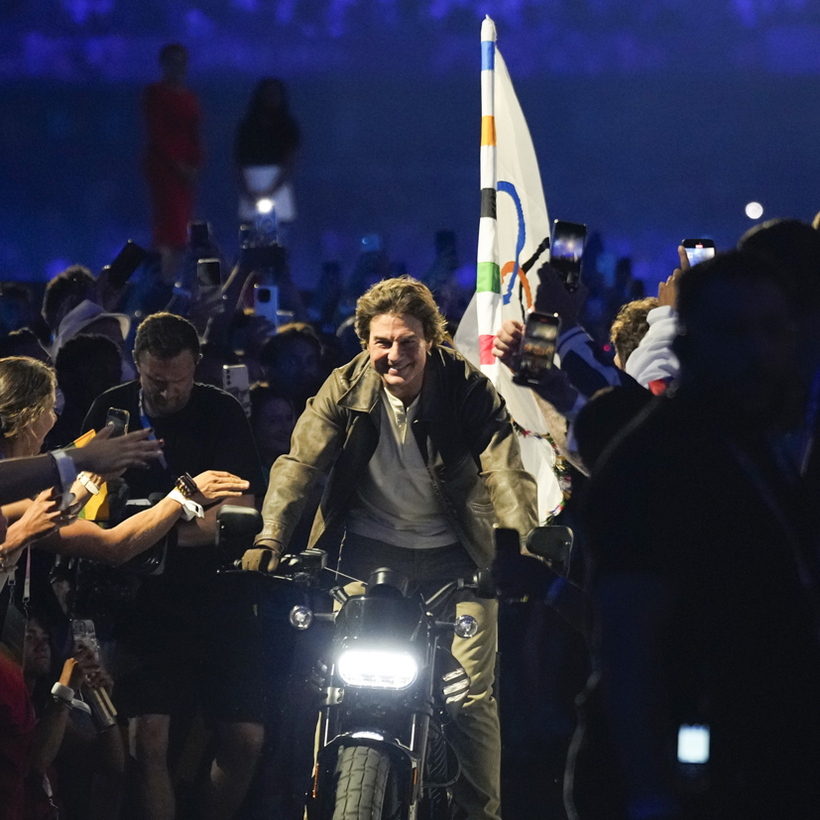With a waft of his Sandi Toksvig-style feathery haircut the 62-year-old took a tiny steadying step forward, the kind that any 62-year-old makes when rising from watching too much sport on television and has sofa cramp in their thigh, except for this 62-year-old it was to fall from the edge of the roof of the Stade de France in a live abseil at the close of the Paris Olympics.
It was absolutely no accident that the Tom Cruise stunt was a redo of the spoof parachute jump staged by Queen Elizabeth and James Bond to kick off the London Olympics in 2012. The 12-year period from 2012 to 2024 for Cruise has been the strangest of any Hollywood star, which for an ordinary mortal would be filed under the label of “midlife crisis”.

